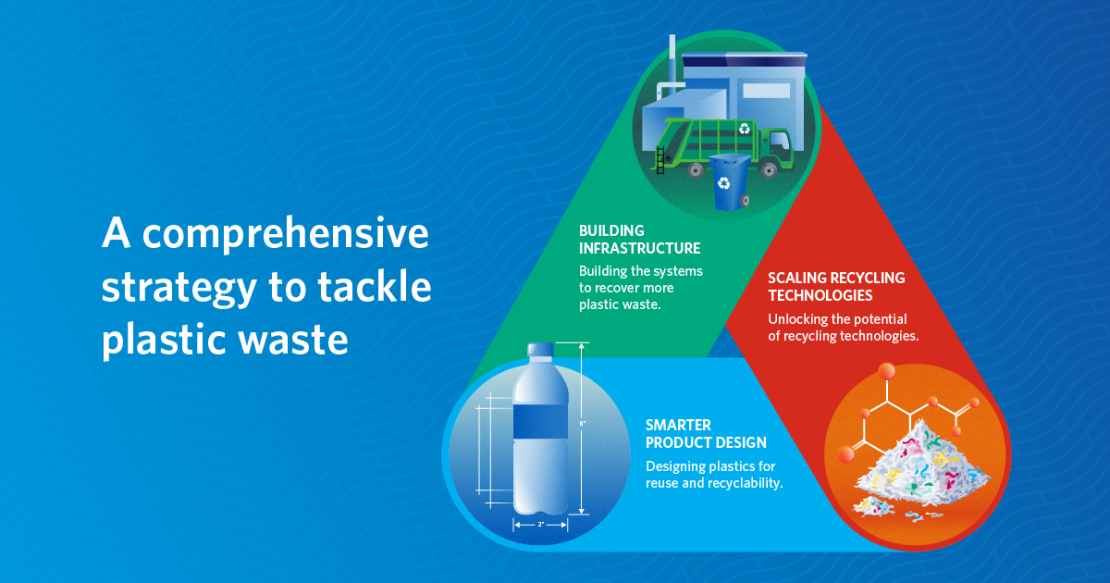No single solution can solve the global challenge of plastic waste. First, we must recognize that there is immense value in plastics and the ability to reuse or recycle these products. From there, we need to get a recycling system that works. This means we need a system that spans the entire lifecycle of plastics — from design to disposal and reuse — where plastics are designed, manufactured and recovered in ways that support reuse and recycling. At AFPM, we advocate for a comprehensive strategy that includes:
Smarter product design
Designing plastics for reuse and recyclability.
We need to make it easier for more plastics to be recycled or reused by addressing how plastic products are designed. Petrochemical manufacturers are partnering with their customers to cut out extra packaging materials, use fewer colors and incorporate fewer components to enable more plastic products to enter the recycling system and make those plastics easier to recycle.
Building infrastructure
Building the systems to recover more plastic waste.
Easy access to recycling isn’t available in all communities. And many of the recycling systems that are in operation today are limited in what types of plastics they can process. To ensure more consumers have access to recycling, we need to build out collection, sorting and waste management infrastructure across the country. This includes working with policymakers to ensure we have the right policies in place to support this build-out.
Petrochemical manufacturers are doing their part by making investments in private waste collection and sorting facilities, as well as partnering with big plastic users to secure used plastics that they can then recycle and give new life.
Scaling recycling technologies
Unlocking the potential of recycling technologies.
We need to scale up recycling facilities nationwide to leverage the potential of mechanical and advanced recycling technologies. While petrochemical manufacturers are making investments in these technologies, we still need a regulatory environment that recognizes advanced recycling facilities as manufacturing operations and recognizes used plastic as “feedstocks” that can be turned into new products versus waste to be discarded. This will unlock the potential of technologies like advanced recycling to increase recycling rates and expand what and how we recycle.
These strategies cannot succeed in isolation, but together they can build a circular economy for plastics — one that reduces waste, conserves resources and supports a more sustainable future.
The American Fuel & Petrochemical Manufacturers (AFPM) is the leading trade association representing the makers of the fuels that keep us moving, the petrochemicals that are the essential building blocks for modern life, and the midstream companies that get our feedstocks and products where they need to go. We make the products that make life better, safer and more sustainable — we make progress.



